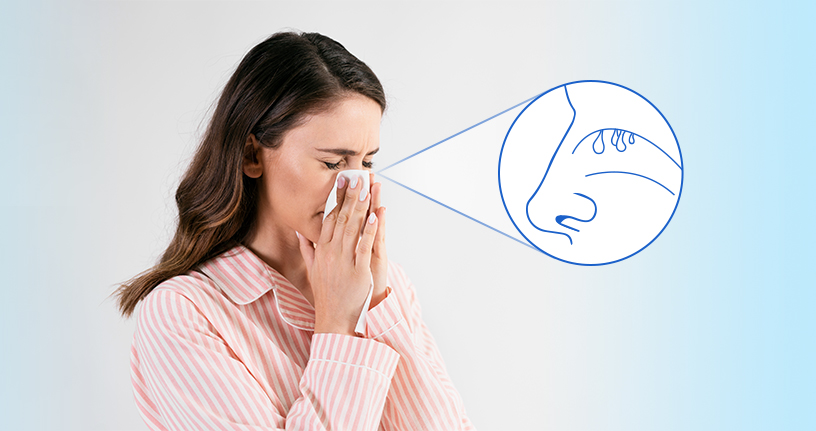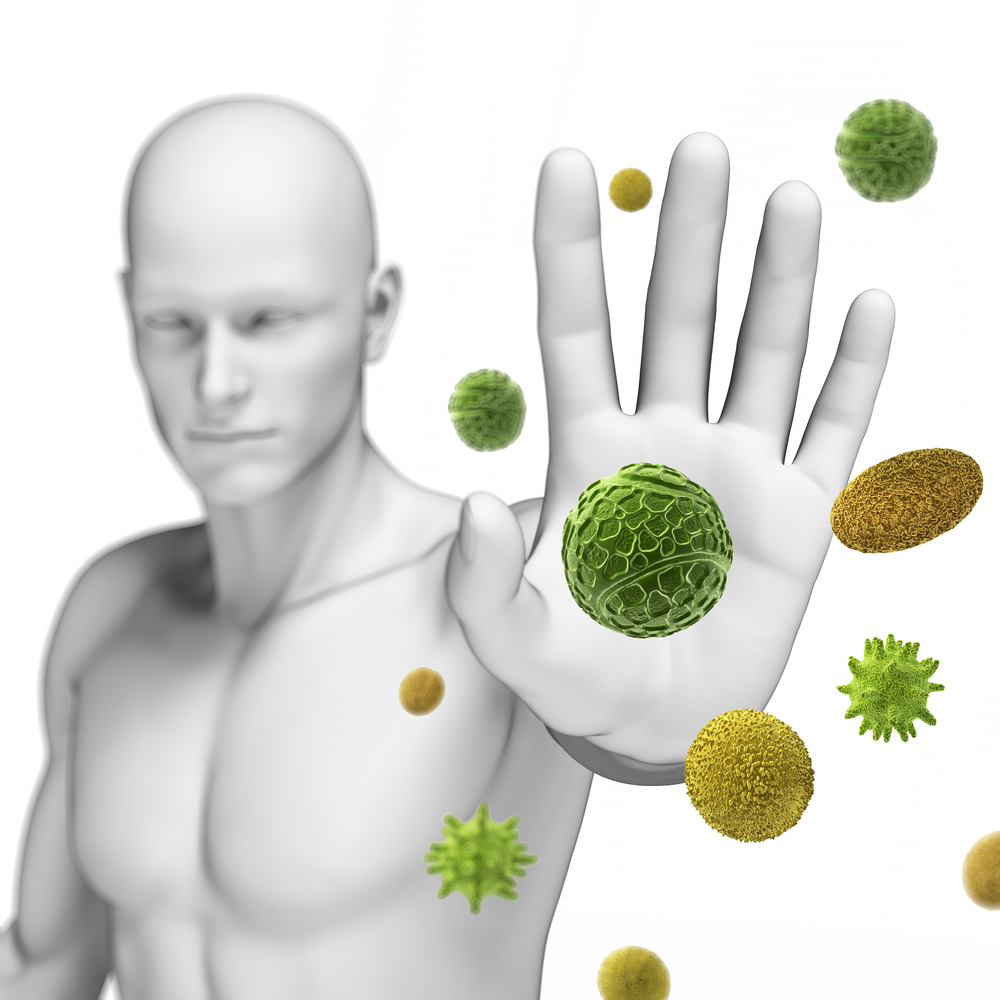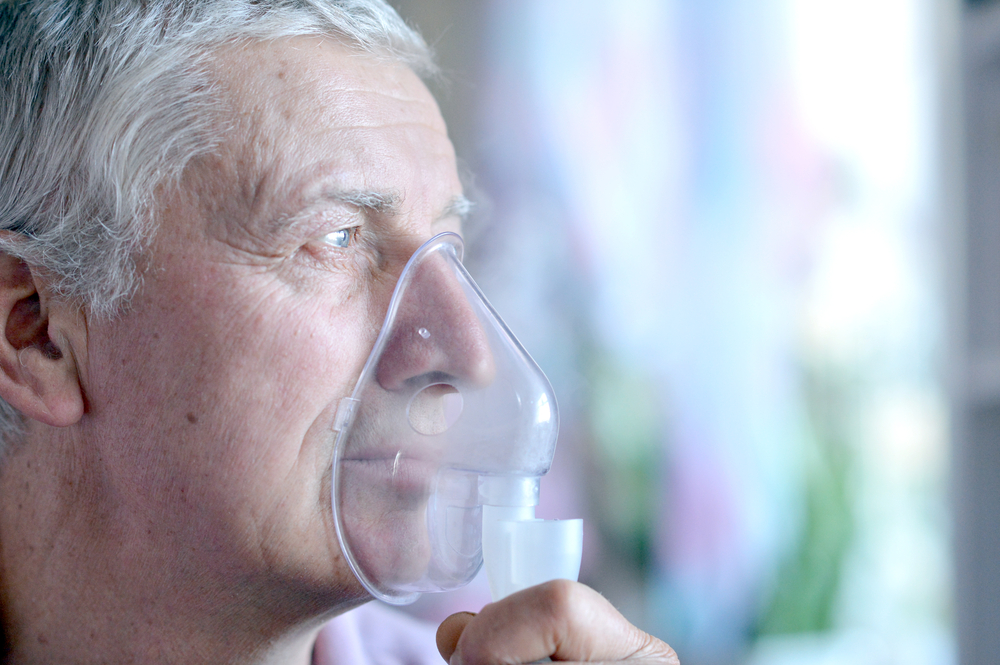Nasal polyps are non-cancerous growth or swelling on the inner lining of the nose. They are soft and have painless growth. Sometimes your cold never goes away due to the nasal polyps. They result from prolonged asthma, recurring infection, allergies, drug sensitivity, or certain immune disorders. They appear down like teardrops or grapes.
Small polyps are not problematic, but larger growths or groups of nasal polyps can block the nasal passage and lead to breathing problems, loss of sense of smell, and frequent infections. Nasal polyp types include ethmoidal and antrochoanal polyps. Ethmoidal polyps are the most common and develop from the ethmoidal sinuses, which are present between the nose and the eyes. Antrochoanal polyps are rare and develop in the maxillary sinuses, located above the teeth and below the nose and cheeks.
Causes of Nasal Polyps
They are the growth of inflamed tissue of the nasal mucosa. The mucosa is a very wet layer that protects the inside of your nose and sinuses and humidifies the air a person breathes. During allergy, infection, or inflammation, the nasal mucosa becomes swollen and may produce fluid that drips out. With prolonged infection or irritation, the mucosa may form a polyp. A polyp is a small growth or cyst which creates breathing problems. Sometimes without any previous nasal problems, few triggers may develop polyps.These triggers may include:
-
-
- Recurring sinus infections
- Severe prolonged asthma
- Hay fever
- Cystic fibrosis
- Chrug-Strauss syndrome
- Reactive to NSAIDs (nonsteroidal anti-inflammatory drugs) such as ibuprofen or aspirin
- Nasal Mastocytosis
- A deficiency of vitamin D may also lead to nasal polyps
-
Sometimes nasal polyps are due to the hereditary tendency of a person.They usually appear on both sides, and growth on only one side may be something else, such as a cancerous tumor. Some healthcare providers believe that nasal polyps are related to the immune system or the chemical makeup in the lining of your nose and sinuses. But there is a need for more research. Nasal polyps can form at any age, but they are most common in adults aged over 40 and are twice as likely to affect men as women. Consult your doctor to know about your nasal polyp causes.
Symptoms
The swelling of the lining of your nasal passages and irritation due to the inflammation of nasal passages and sinuses that lasts for a longer duration. Nasal polyps are small, soft, and lack sensation. Most of the time, they are harmless, but the multiple growths or large polyps block the passage and cause difficulty in breathing.
Some of the common nasal polyp symptoms are as follows:
-
-
- runny nose
- Constant stuffiness
- Postnasal drip
- A reduced sense of smell
- Pain in the upper teeth
- Snoring
- Frequent nosebleeds
-
When polyps get bigger, they may cause severe problems leading to:
-
-
- Frequent asthma attacks in people with asthma
- frequent sinus infections
- sleep disorders
- difficulty in breathing, even in people who don’t have asthma
- Irritation around the eyes
- Many patients experience wheezing and become sensitive to fumes, odors, dust, and chemicals.
-
Diagnosis
Nasal polyps can be easily diagnosed as symptoms are easy to detect. Consult your doctor if any of the symptoms appear, and your healthcare provider may ask about your:
-
-
- health history, allergies, infections, and asthma
- duration of symptoms
-
Nasal endoscopy may easily identify polyps, and your healthcare providers may advise a CT scan of your nasal passage. This will give detailed pictures of your polyps leading to the correct diagnosis and severity. Physicians may advise blood tests to check Vitamin D levels to see if it is the reason behind the formation of nasal polyps.
Treatment
Consult your doctor if any of the symptoms related to polyps appear, and the physicians may advise medications and other treatment methods. Nasal polyp removal without surgery is possible through the use of medications.
-
-
- Medication– First treatment given to the patients is nasal corticosteroid spray. Medicine like prednisone is advised to take orally for a week, and healthcare specialists may also advise a shot of a medicine called dupilumab. Unfortunately, polyps may also reappear if allergies, irritation, or infection continue. So patients are advised to continuously use the nasal corticosteroid spray and get regular checkups with a nasal endoscopy now and then. Antihistamines, antibiotics, steroids, etc., treat allergies and infectionsand stop nasal polyps’ formation. Montelukast is prescribed to people with allergic asthma and hay fever, reducing nasal polyps’ symptoms.Consult your doctor for nasal polyp oral treatment miracle. Be sure to use these medications under a doctor’s supervision.
-
-
-
- Surgery- Sometimes nasal polyps are too big to treat with medications,requiring surgery. Nasal surgery is of short duration, and your physicians use a small nasal telescope that removes nasal polyps. During the procedure, smaller polyps are removed with the help of a suction device, and other larger polyps are removed with tools called graspers or microdebrider. The patient is discharged on the same day as the surgery. But if nasal polyps occur along with asthma and aspirin sensitivity, surgery is less effective. Medication is more helpful than surgery during this situation. After surgery patient experiences mild pain and bleeding in the nose, these symptoms disappear within a week, but some blood may appear when a patient blows the nose for up to a month.
-
Prevention
Following guidelines and preventive measures can prevent nasal polyps from forming in your nose. The given preventive measures reduce the recurrence and nasal polyp causes.
-
-
- Prevention of allergies and asthma- Follow the guidelines provided by your physicians, and don’t do anything which may cause an allergic reaction and trigger your asthma.
- Avoid nasal irritants- avoid breathing airborne irritants, which may cause swelling of your nose and sinuses.
- Good Hygiene –If you touch your nose frequently, it’s important to keep your hands clean to prevent infections and irritation.
- Humidify your home- A humidifier helps moisten your breathing passages, improve the flow of mucus from your sinuses, and help prevent blockages and inflammation. Keep the humidifier clean regularly to prevent bacteria from growing.
- Use a nasal rinse- keep your nose clean, which can be done with saline spray or nasal wash. This improves mucus flow and removes allergens and other irritants from your nose.
-
If nasal polyps are forming inside your nose and interfering with your quality of life, consult your physicians. There is no safe or effective way to remove polyps on your own, so consult and get your polyps removed with the help of a physician. Follow your healthcare specialist’s guidelines and preventive methods.




